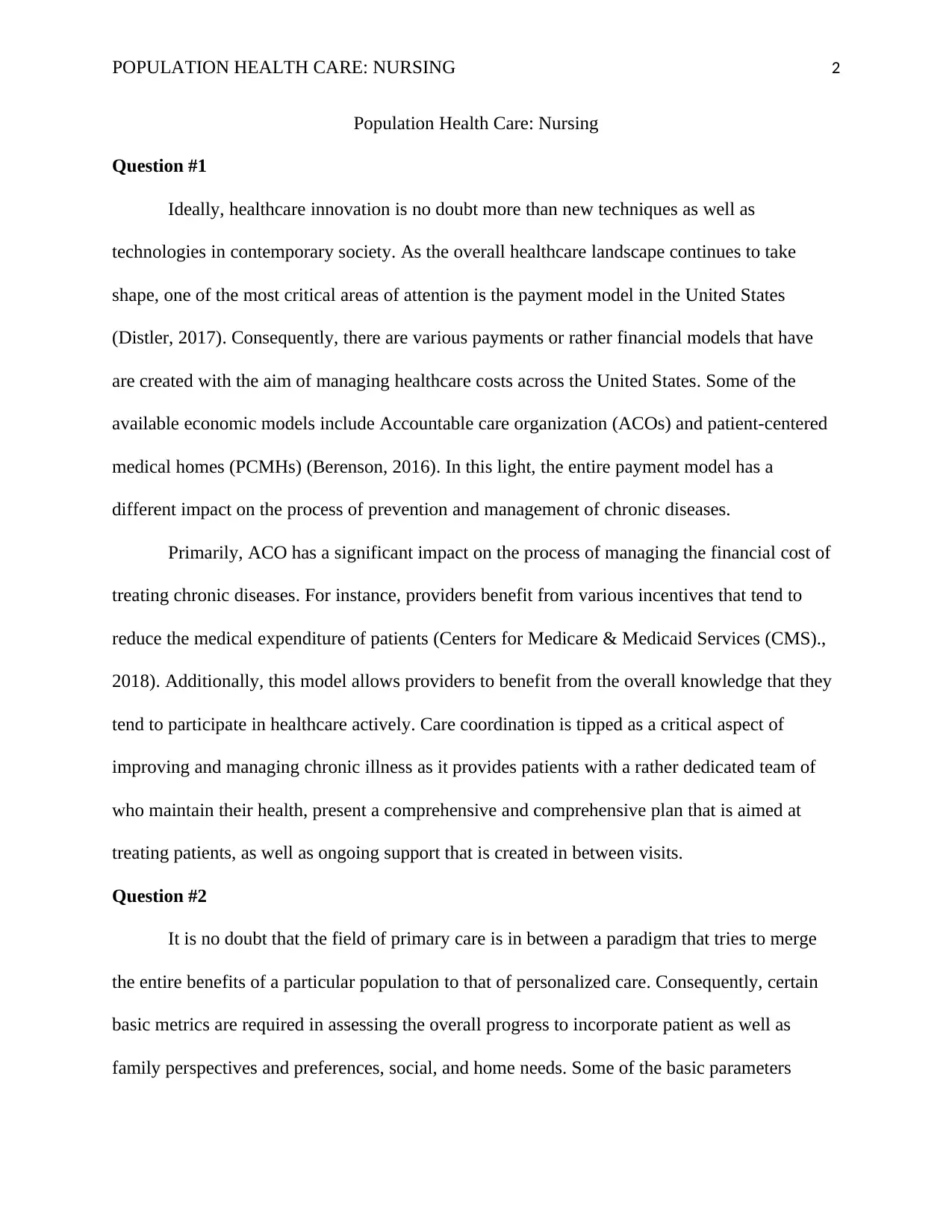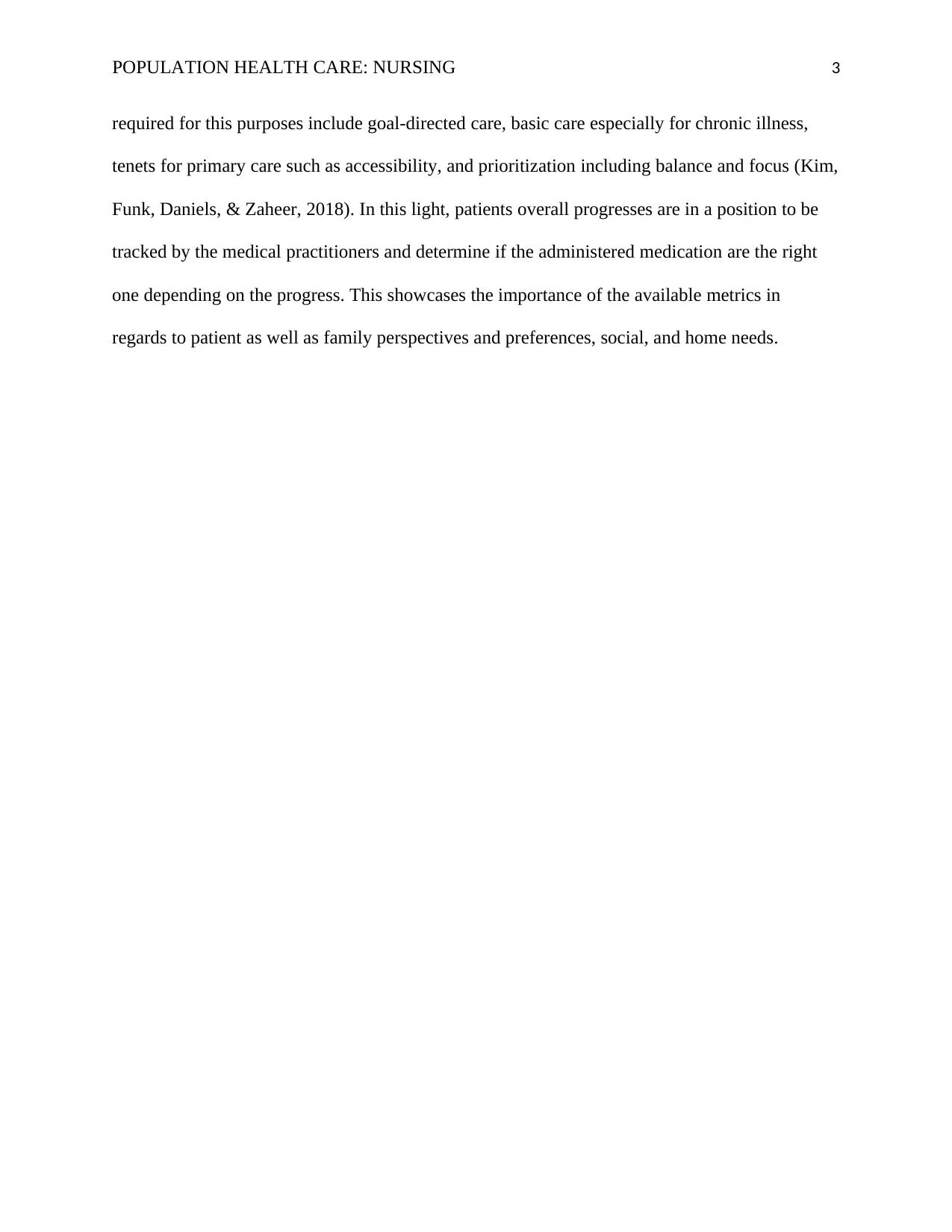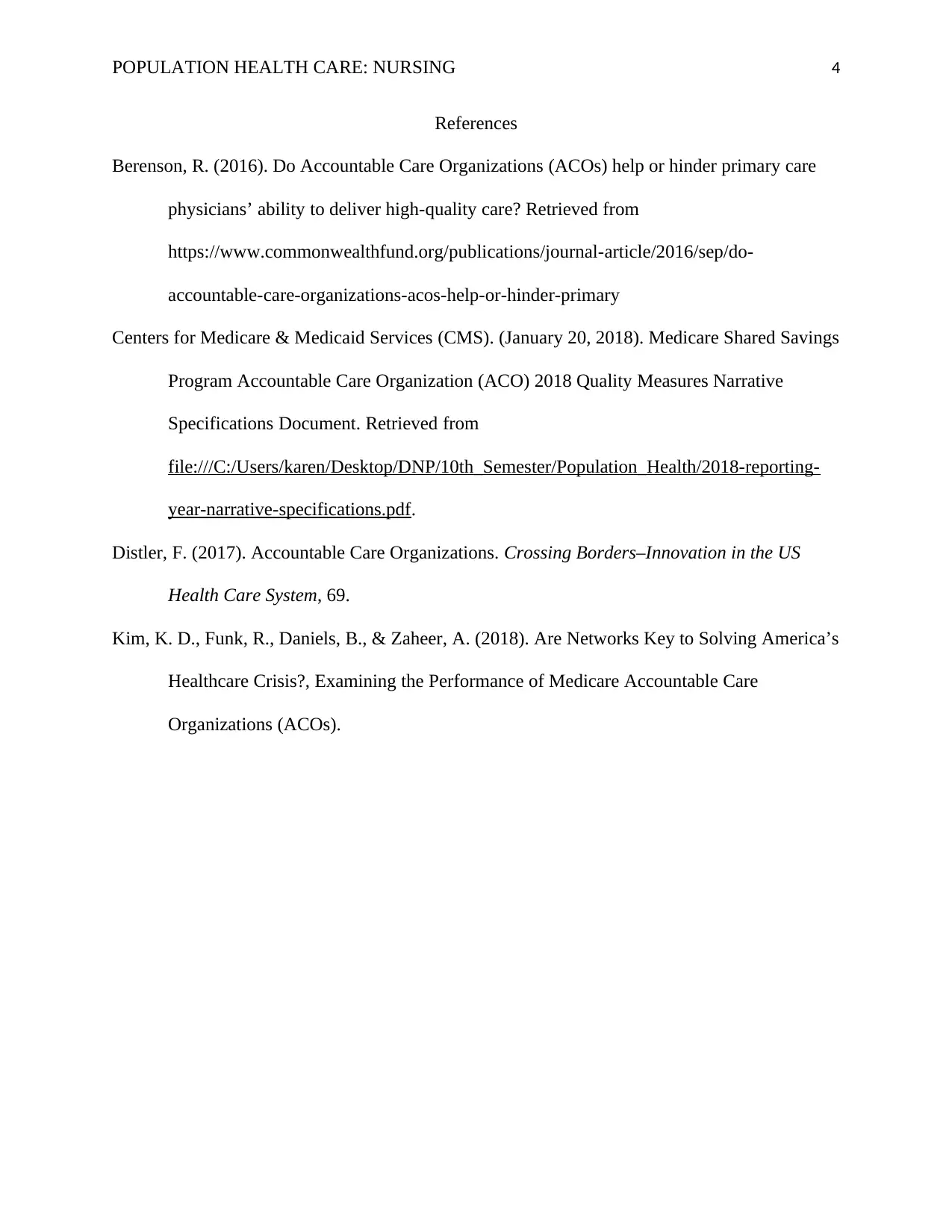Impact of Financial Models in Population Health Care: Nursing
VerifiedAdded on 2023/06/03
|4
|608
|82
Homework Assignment
AI Summary
This assignment explores the impact of financial models, specifically Accountable Care Organizations (ACOs), on population health care and nursing practices. The student analyzes how ACOs influence the prevention and management of chronic diseases, highlighting the financial incentives and care coordination strategies employed. The assignment also examines key metrics essential for assessing progress in primary care, emphasizing the importance of incorporating patient and family perspectives, social needs, and home environments. References to relevant research and sources support the analysis, providing insights into the evolving landscape of healthcare payment models and their implications for patient care and outcomes. The paper contrasts the benefits of ACOs and patient-centered medical homes (PCMHs) and discusses the importance of goal-directed care and accessibility in primary care settings.
1 out of 4











![[object Object]](/_next/static/media/star-bottom.7253800d.svg)